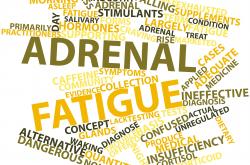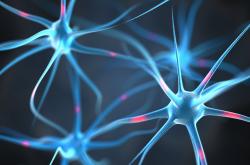Beyond Pain: Rheumatoid Arthritis and Fatigue
The term “rheumatoid arthritis” is most commonly associated with the joint pain, stiffness, and swelling experienced by most patients with the disease. What many people fail to understand is that fatigue is one of the most common symptoms as well.

For many millions of people, rheumatoid arthritis is one of life’s major challenges. The pain and fatigue caused by this disease can make even the smallest of chores seem like major obstacles. In most cases, the lack of energy experienced by these patients can be dealt with, but it requires a firm understanding of the nature of the disease and its symptoms, why fatigue occurs, and the best strategies for countering its effects.
What is Rheumatoid Arthritis?
Rheumatoid arthritis (RA) is classified as an autoimmune disease, due to the way that the immune system attacks the joints and other areas of the patient’s body. These attacks lead to inflammation that can damage the joints. In ordinary arthritis, that inflammation might only occur in the joints on one side of the body. Rheumatoid arthritis is distinguished by the way that it strikes joints on both sides in a symmetrical manner.
The inflammation caused by RA creates warmth and redness in the affected areas, as well as swelling and joint pain. The disease’s effects can also extend beyond joints, affecting areas like the skin, heart, lungs, and even the eyes. In about twenty percent of patients, nodules form on the outside of the skin – particularly around critical areas like the elbows, the heels, and the knuckles.
RA Symptoms
The symptoms include inflammation, swelling, pain, redness, limited mobility, and fatigue. These symptoms also tend to vary in severity and in the way they develop. In some instances, patients have plenty of warning as the inflammation develops gradually over the course of many months. For other patients, the symptoms just appear seemingly out of nowhere. Once RA sets in, pain and swelling can spread throughout the body, from the neck to the feet.
RA Causes
The exact cause for the disease remains unknown. Many researchers believe that the immune system’s otherwise inexplicable attack on the body could be the result of confusion in the wake of an encounter with some bacterial infection or virus. After responding to that crisis, the immune system just carried the fight to the joints due to some failure to recognize that the war was over.
Who Does RA Affect?
Rheumatoid arthritis can affect both men and women, but it appears to be more at least twice as common for women to contract the disease. According to most estimates, about one percent of the population can expect to suffer from this condition starting around middle age.
How Does Rheumatoid Arthritis Cause Fatigue?
The main reason for the fatigue you feel with your rheumatoid arthritis is simple: there is only a limited supply of energy within your body at any given time. Though the human body is a living battery of sorts, it is not unlimited in its capacity to meet all challenges. As a result, it has to prioritize to ensure that pressing demands receive the attention they need.
So, what happens with RA to consume so much energy? It’s simple. When RA inflammation occurs, it produces heat and directs blood to the affected regions. For blood to flow to those areas, it has to be redirected away from carrying nutrients to other cells in the body. That disrupts the energy production of your cells’ mitochondrial factories, which leads to lower energy levels and inevitable fatigue.
Pain is also a factor, however. Because pain creates undue stress on the body’s systems, the stress response throws the body’s hormones out of alignment. Over time, this exaggerated response leads to a weakening of the body’s ability to properly manage the increased stress, which then leads to enhanced fatigue that can eventually become chronic in nature.
How Can You Manage Rheumatoid Arthritis Fatigue?
Obviously, managing this type of fatigue is essential for any patient seeking to enjoy a reasonably normal life. Fortunately, there are some things you can do to alleviate the symptoms, regain some energy, and return to a more active lifestyle.
- Stay in touch with your doctor. Never be afraid to tell your physician that you’re feeling worse than usual on any given day. There is no such thing as “normal fatigue.” Rather than just enduring it, alert the doctor so that he or she can determine whether adjustments need to be made to your RA treatment plan.
- Eat well. Healthy food consisting of all the major food groups can do wonders for your natural energy levels. Include plenty of vegetables, fruits, proteins, and fats to provide your body with the nutrients it needs every day.
- Sleep is a priority. It reduces stress, promotes healing, and helps to recharge your batteries. If the pain is keeping you awake at night, let your physician know so that steps can be taken to address that issue.
- Exercise, even when you don’t want to. This is a must too. Exercise is critical for inflammation reduction and energy enhancement.
- Rest when you need to. Often times, patients try to push their bodies beyond what they can manage. This leads to increased stress, frustration, and greater exhaustion. When your body says it’s time to relax, listen to it!
- Put your pride away and use whatever help you need. Face it: as your illness progresses, you may need a cane or other implement to help you relieve joint pressure when you walk. Accept that support for what it is, and just be thankful that these medical devices exist to help you through your day.
- Treat associated conditions too. Depression, anemia, and various medications can all add to the effects of your rheumatoid arthritis fatigue. Make sure those are being addressed so that you’re covering all your bases!
The inflammation, pain, and general discomfort caused by rheumatoid arthritis are bad enough without the fatigue that most RA patients experience. Thankfully, there are positive steps that you can take to alleviate the exhaustion and regain some portion of your quality of life.
You might also be interested in:
- How To Beat Fatigue. http://www.arthritis.org/living-with-arthritis/pain-management/fatigue/beat-fatigue.php
- RA: Tips to Manage Your Fatigue. http://www.webmd.com/rheumatoid-arthritis/features/coping-with-fatigue-weakness-and-rheumatoid-arthritis?page=2
- Chronic Fatigue From RA: 6 Ways to Fight Back. http://www.everydayhealth.com/hs/rheumatoid-arthritis-treatment-management/chronic-fatigue/
- Tired of Rheumatoid Arthritis? Tips and Cures for Fatigue. http://www.healthline.com/health-slideshow/rheumatoid-arthritis-fatigue



















Leave a comment